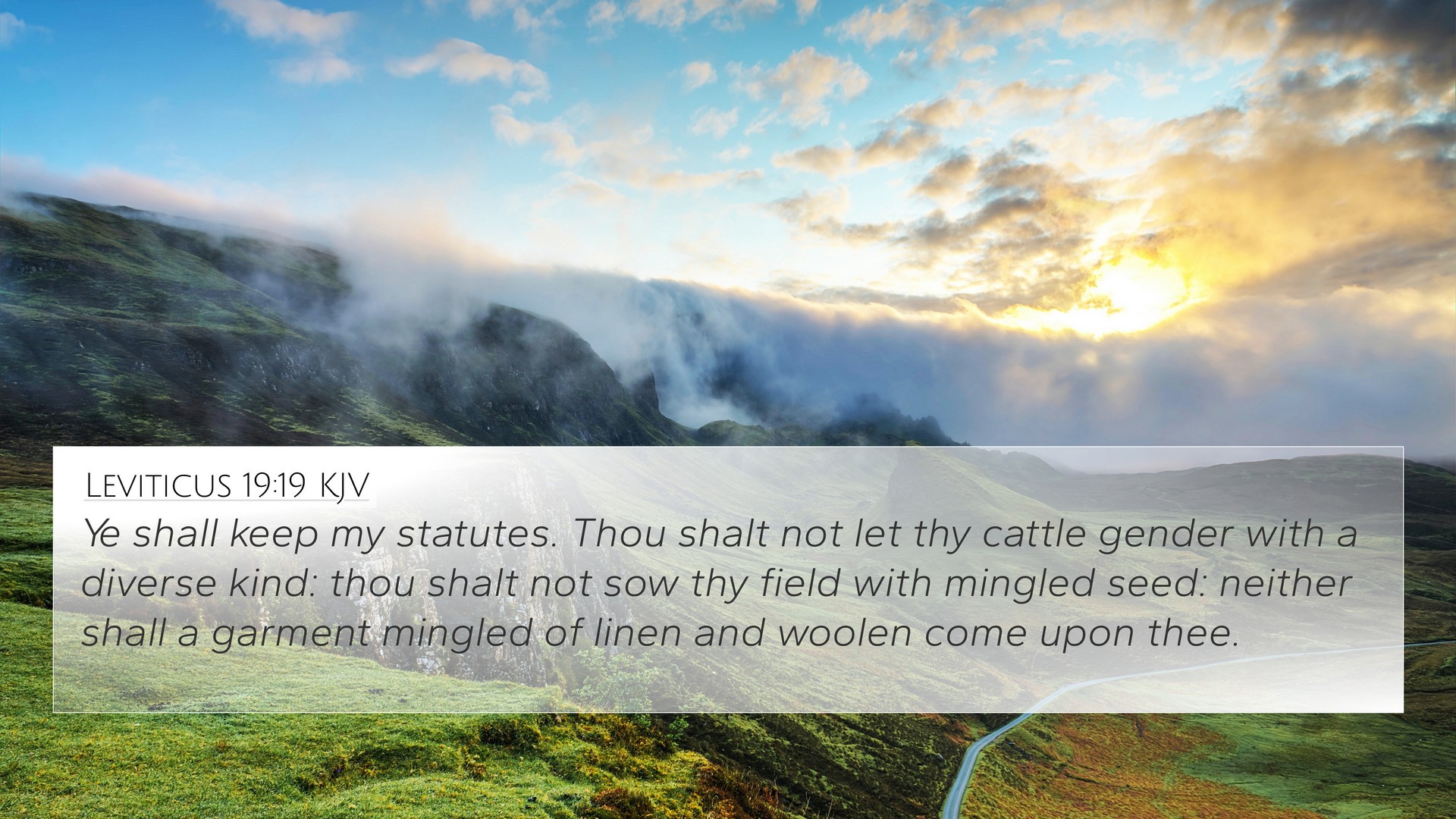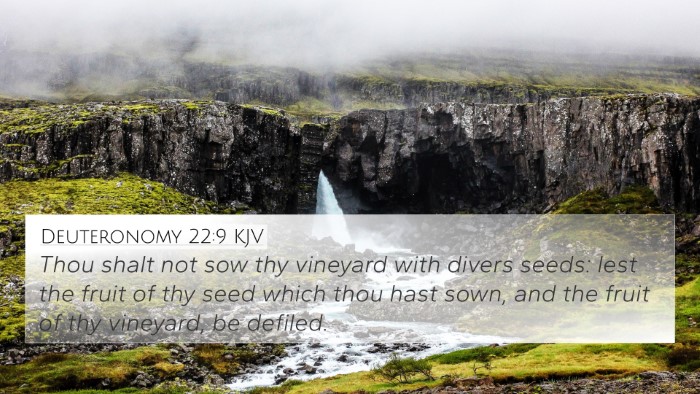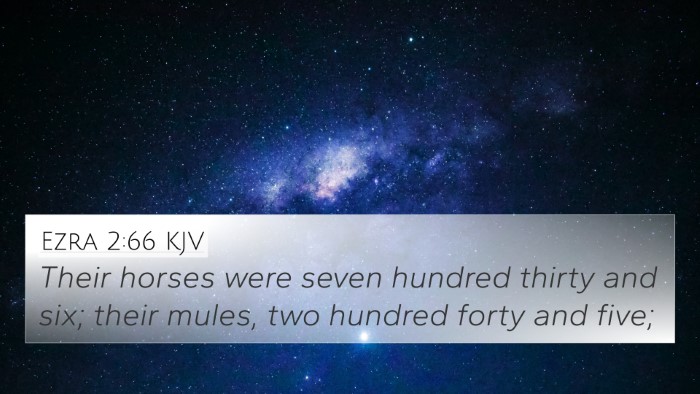Understanding Leviticus 19:19
This passage, Leviticus 19:19, reads: "Ye shall keep my statutes. Thou shalt not let thy cattle gender with a diverse kind: thou shalt not sow thy field with mingled seed: neither shall a garment mingled of linen and woolen come upon thee." This verse emphasizes God’s call to holiness and separateness in Israel's lifestyle and practices, ensuring that all aspects of life are directed towards spiritual purity.
Key Themes of Leviticus 19:19
- Holiness: The overarching theme of this chapter is the call to live a holy life in a manner pleasing to God.
- Separation: The injunctions given reflect a separation from practices that were common in pagan worship.
- Order and Distinction: The distinctions in agriculture and clothing symbolize the need for order and identity among God's people.
Commentary Insights
Matthew Henry's Commentary
Matthew Henry highlights the principles behind the laws given in Leviticus 19:19. He explains that these directives not only pertain to agricultural and textile practices but also serve as a metaphor for the spiritual state of the people. The mixture of seeds represents a mingling of the pure with the impure, which is a symbol of the moral and spiritual purity that God demands from His followers.
Albert Barnes' Commentary
Albert Barnes expands on the significance of this verse by noting the necessity of obedience in various aspects of life. He asserts that the divine laws are designed to promote not only physical separation in practices but also a deeper spiritual detachment from worldly customs that are contrary to God's will. This command illustrates God’s design for His people to be distinct and set apart.
Adam Clarke's Commentary
Adam Clarke provides a detailed analysis regarding the implications of this verse. He emphasizes that maintaining purity through separation is crucial for the Israelite identity and their relationship with God. Clarke suggests that even the seemingly mundane practices can carry spiritual significance and serve to remind believers of their commitment to God's covenant.
Cross-References
- Deuteronomy 22:9-11: Relates to the prohibition of mixing kinds in agriculture and textiles, emphasizing purity in practice.
- 2 Corinthians 6:14: Highlights the call for spiritual separation, paralleling the ideas of mixed practices and relationships.
- 1 Peter 1:16: Reiterates God's command to be holy, drawing a direct line to the call made in Leviticus.
- Romans 12:2: Discusses the transformation and non-conformity to the patterns of this world, linking back to the purity theme.
- James 1:27: Encourages believers to keep themselves unspotted from the world, echoing the separation set forth in the Old Testament.
- Ephesians 5:11-12: Calls for exposing darkness, indicating a clear divergence from mixed practices in faith.
- Galatians 6:7: Cautions against reaping corruption from mixed practices, reaffirming the law of sowing and reaping.
Applications and Reflections
In applying the insights from Leviticus 19:19, believers are encouraged to examine various aspects of their lives and practices to ensure they align with God's call to holiness. The command extends beyond physical practices to encompass spiritual and moral living. This includes:
- Evaluating Relationships: Ensuring that friendships and partnerships are uplifting and aligned with God’s values.
- Choosing Integrity: Maintaining honesty and purity in both personal and communal engagements.
- Spiritual Practices: Emphasizing prayer, study of the Word, and worship that honors God as distinct from worldly influences.
Conclusion
Leviticus 19:19 serves as a rich text for understanding God's expectations for His people in both historical and contemporary contexts. The connections established through biblical cross-references demonstrate that the principle of holiness and separation from worldly practices is a consistent theme throughout Scripture.












